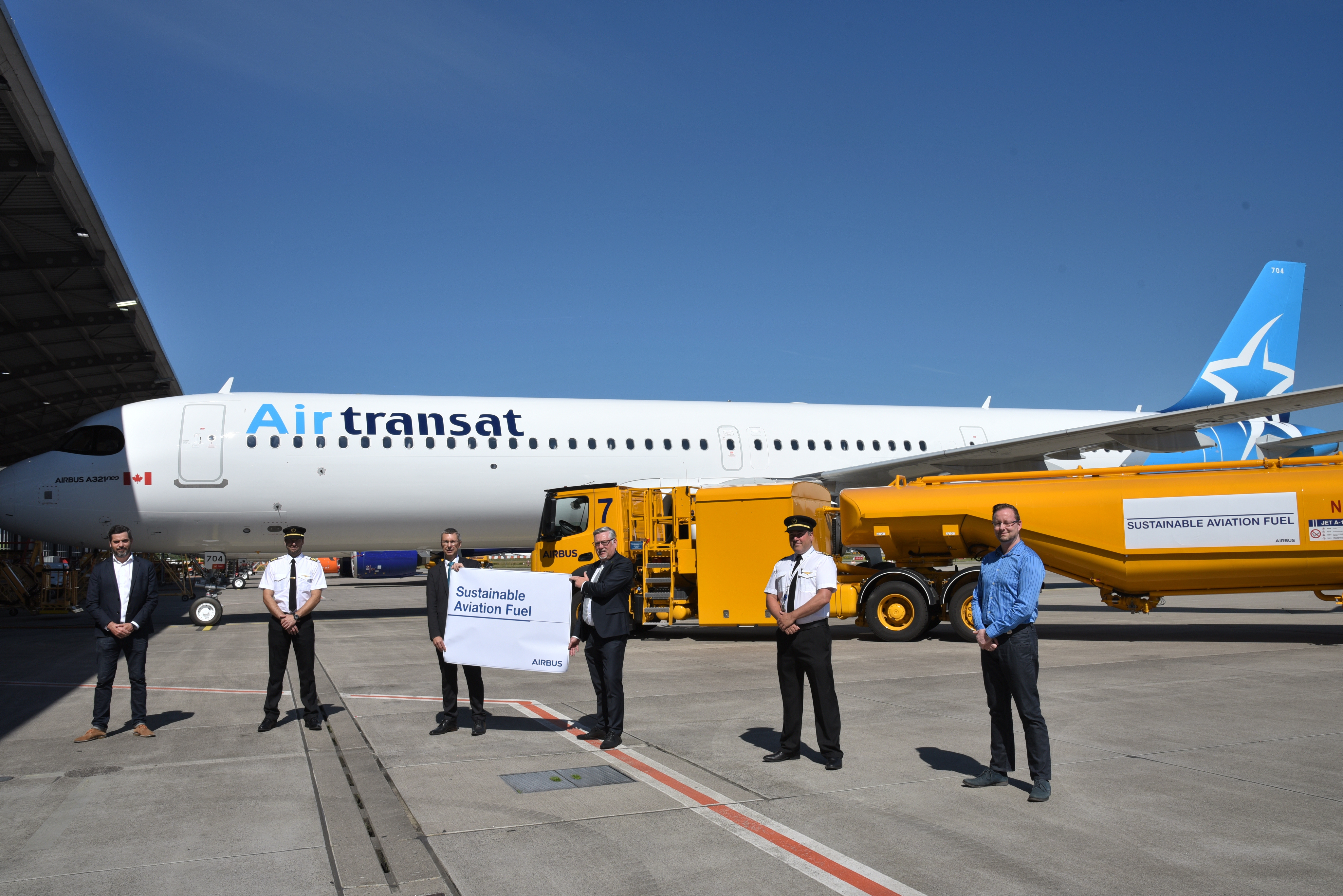Two new Airbus A321neoLRs for Air Transat

Air Transat has completed two delivery flights with its new jets fuelled by a kerosene blend containing 10% sustainable aviation fuel (SAF), a first for the Canadian carrier. It is also a first for the Airbus plant in Hamburg, Germany, which produces these aircraft.
“It is an honour for us and a sign of confidence from Airbus to be, together with AerCap, its first customer to take advantage of this new delivery option at its Hamburg plant,” said Jean-François Lemay, President and General Manager, Air Transat. “This initiative is part of our commitment to reducing our own carbon footprint while contributing to the achievement of the airline industry’s ambitious decarbonisation targets.”
Christian Scherer, Chief Commercial Officer Airbus, commented: “Sustainability and efficiency are essential for our customers and for Airbus. Sustainable aviation fuel developments will play a key role in reducing the environmental footprint of the aviation industry. By using sustainable aviation fuels on delivery flights with partners like AerCap and Air Transat, who are flying the aircraft from Hamburg to their Canadian home base non-stop, we take concrete action to contribute to a more sustainable aviation future.”
And Philip Scruggs, President and Chief Commercial Officer of AerCap, stated: “We are very pleased to be a part of this historic milestone, working together with our partners at Airbus and with our long-time customer, Air Transat, to help them meet their sustainable growth ambitions. The A321neoLR will allow Air Transat to generate significant fuel savings while reducing the environmental impact of its operations.”
Both delivery flights are carbon-neutral because the kerosene fossil fuel portion was offset by the purchase of carbon credits. “We are proud to be the first Canadian carrier to operate carbon-neutral flights, and we will continue to pursue our commitment to providing our passengers with a travel experience that takes account of our environmental footprint,” Mr Lemay continued.
Produced by the Hydroprocessed Esters and Fatty Acids (HEFA) process by Neste and supplied by AirBP, the sustainable fuel for both flights is certified by the International Sustainability and Carbon Certification (ISCC) system and meets the sustainability requirements of the European Union’s Renewable Energy Directive.
Air Transat and Airbus have a long-standing and productive partnership on environmental matters. Since its inception, Air Transat’s Environment department, with the technical support of the Airbus team, has implemented several projects aimed at improving fuel efficiency and environmental management of its flight operations and facilities, including the fuel management program and ISO14001 certification.
These two aircraft, which are the fifth and sixth Airbus A321neoLRs that Air Transat is adding to its fleet, are part of an agreement with AerCap for the long-term lease of 17 A321neos (16 in LR version). These new-generation aircraft consume 15 percent less fuel than the previous generation of Airbus jets.
Air Transat recently announced another important SAF initiative. The carrier has reached an agreement with the SAF + Consortium of Montreal to purchase a large portion of its SAF production, which will be made from CO2 produced by large industrial emitters. Using a process called Fischer Tropsch (FT), the CO2 will be captured and converted into synthetic aircraft fuel, which is estimated to have an 80% lower carbon footprint than conventional jet fuel.
